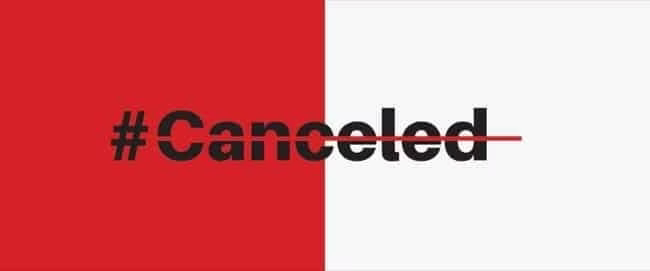Exploring Both Sides of the Free Speech and Cancelling Debate

With all the both-sided vitriol around free speech, canceling, and de-plaforming I thought it a good time to inject some equally both-sided common sense.
Basically, one side thinks it’s wrong to de-platform people for having controversial—but not directly violence-inspiring—viewpoints. They often quote the first amendment about how nobody is supposed to ever be allowed to silence anyone on their platforms.
Except, that’s not what the first amendment says. It says that "congress" shall make no law, meaning, the government. It has nothing to do with regular folks, which is what we’ll talk about next.
Ok, so the restrictions that exist are really about government silencing people, and people saying things that can directly cause violence or harm to others.
So does that mean companies should be allowed to kick anyone they want off their platforms?
That’s what the other group says, which is basically that someone spewing unpleasant or stupid or hateful ideas can be kicked out of a local flower shop by the owner—so there’s no difference between that and a social media company kicking someone off their platform for vaccines are dangerous.
That makes sense.
The problem is when these two things combine.
Let’s do that by imagining a giant social media company called—well, let’s just make up a name. Let’s call it "Face book".
So let’s say Facebook beats out all its competitors and becomes the one and only way for people to be heard at a large scale. And let’s say it’s run by some really, really rich Republicans who hate gender equality, climate change politics, and are spending billions telling people to avoid vaccines.
They also hire thousands of people to write algorithms and manually filter content on their platform, and they make sure nobody is saying anything positive about these things. When they see them, they just delete them.
So a whole bunch of liberals start getting upset. They say they’re being shut out. They say they have no voice.
And the Republicans respond by pointing to the street corner, and saying, "Nobody’s stopping you from your free speech. Feel free to assemble on the street, start a blog, or put a sign on your front lawn. Nobody’s stopping you."
Now here’s the question: is that ok? Should society simply shrug and walk away from this?
What are the grounds or mechanism for stopping them from excluding content? They’re just a flower shop, right?
No, that’s not right. They’re not a flower shop. They’re a speech shop. And they’re the only speech shop.
The moment things changed was the moment they became the only voice that could reach the masses. Sure, you could technically send postcards or try your hand at HAM radio, but effectively—in reality—you’re dead if you’re blocked from the one and only social media network in the world.
My argument is that we need to look at the spirit of the constitution, not only the letter.
It says "congress" because it’s differentiating between the overwhelming force vs. the little guy. People are the little guy. Getting on the street corner is the little guy. Standing on soap boxes is the little guy. And so are flower shops. Those folks are free to ban you all they want, for whatever reason—because they’re not in charge.
That’s the difference. Having control.
Once you have control—according to the spirit of the constitution—at least as I interpret it—you take on the responsibility of impartiality.
Right now we only have a couple of giant media companies—Facebook, Twitter, and YouTube, and since they’re mostly banning the same people I’d argue we’re getting pretty close to the situation I argue the founders were trying to avoid.
And that raises an interesting question.
Does that mean that the government will then have to become the counterbalance to the biased monopolies? So in this case, the government would have to have a social media PBS show that features the liberal side of the issue?
Or does the government simply step in and create a law saying FaceTube has to do that?
Either way, I hope this has helped you think about the situation differently.
It’s bad if the government can silence opinions, which is why we made a law against it. But if you look at it closely, the law is really about overwhelming forces silencing opinions—and they only mentioned the government because they hadn’t yet heard about FaceTube.
Thanks to Jeremiah Grossman for talking through this with me, and for coming up with the idea that the government might have to (ironically) come up with a PBS of ideas if the corporate world can’t handle the ask.
Just in case any extreme right person thinks I’m secretly saying FaceTube should allow their drivel, you’ve got the wrong tree. The most American thing the US has ever done was defeating the Nazis. And I voted for Obama both times. This isn’t about one side vs. the other; it’s about how to find balance and conversation given the fact that technology is changing all the rules.
Just in case any extreme left person thinks I’m saying all extreme right stuff should be allowed to stay on FaceTube, or should absolutely being kicked off, I’m actually not saying either. I’m saying that the First Amendment was a great law that needs to be re-interpreted given technology and the danger of propaganda today. We have new forces at play that change the calculus.